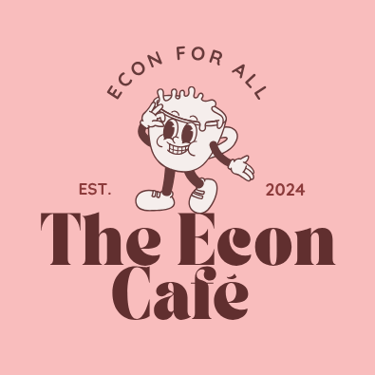Disparities in Wealth
FRESH BREWS
Capitalism may seem like the main cause of the wealth gap in most of today’s economies, but how exactly does it widen wealth inequality? Is it all bad?
This post continues the Economics of Inequality series, specifically, exploring how the gap between the wealthy and the poor is deepened by capitalism.
Ha-Joon Chang once said that ‘If I give food to poor people, people call me a saint. But if I ask why these people don’t have food, they call me a communist. And in that sense, we should all become a bit of a communist’
Now you may disagree with the system of communism – a system defined by common ownership where resources are allocated based on need – calling it a mere dream that never lives up to its ideals. But I argue that in today’s capitalist system which is driven by profit, the inequalities are too big to ignore. And yet, many do. In that sense Chang’s statement becomes almost a solution against the shared complicity that allows these inequalities to thrive.
We all are aware by now of the disparities that continue to prevail between the rich and the poor. But a closer peek will unearth the many hidden truths that serve to benefit the rich and the rich alone. One such example is brought to light by a tragic irony shared by Chang as he poses a question: Why are the jobs the privileged deem life-threatening viewed as a life-saver by the needy? Because the alternative is starvation. Position yourself in the shoes of a window cleaner working on a skyscraper, up a 100 meters in the sky without bearing to look down in order to scrape together a few meals for the day. To you, it may seem like a risk that you will never take while to them, it becomes a solution to all their problems. This striking dichotomy becomes yet another thread in the blanket of inequalities. And these continue to conquer as the poor remain in a rut of endless labor to finally gain a coin they can call their own. This social divide, however, remains masked by the narrative of meritocracy — the widely believed capitalist ideal that hard work leads to success — which ignores the systematic barriers the poor face: lack of high quality education, healthcare or financial safety nets.
One can argue — and must — that the lack of free education and healthcare supported by the free market economies, an economy with no government control, only deepens the chasm of inequalities birthed by capitalism. Ironically enough, capitalism becomes a system that denies universal essential needs while boasting equal opportunities by turning survival into an unaffordable commodity, while society looks the other way. And the result becomes a cycle of illness which dictates unemployment, causing lack of income to afford healthcare, pushing them to the brink of poverty and destruction.
However, it is not to say that capitalism doesn’t benefit the penurious part of society. Indeed, according to the World Bank, between 1990 and 2019, over 1.2 billion people were lifted out of extreme poverty (defined as living on less than $2.15/day). The reason? Many businesses are beginning to invest their money in technology and capital, which refers to equipment and machinery—creating more job opportunities for people across the country. This is said to narrow the economic gap, which, simply put, reduces the vast divide in income between the rich and the poor. Despite its flaws, capitalism can empower even the most impoverished to craft a life of dignity and independence. Take, for instance, women in rural places of India who were once confined to roles of household labor are now able to break free by becoming entrepreneurs and selling their hard work. In this way, capitalism becomes a vehicle of autonomy and self-sufficiency.
Therefore, while capitalism has its advantages, one cannot dismiss the multiplicity of inequalities that it creates. The ones that particularly hurt the disadvantaged of society, leaving them stuck in a cycle they can't break, and so, in that sense, we all have to be a bit of a communist.
